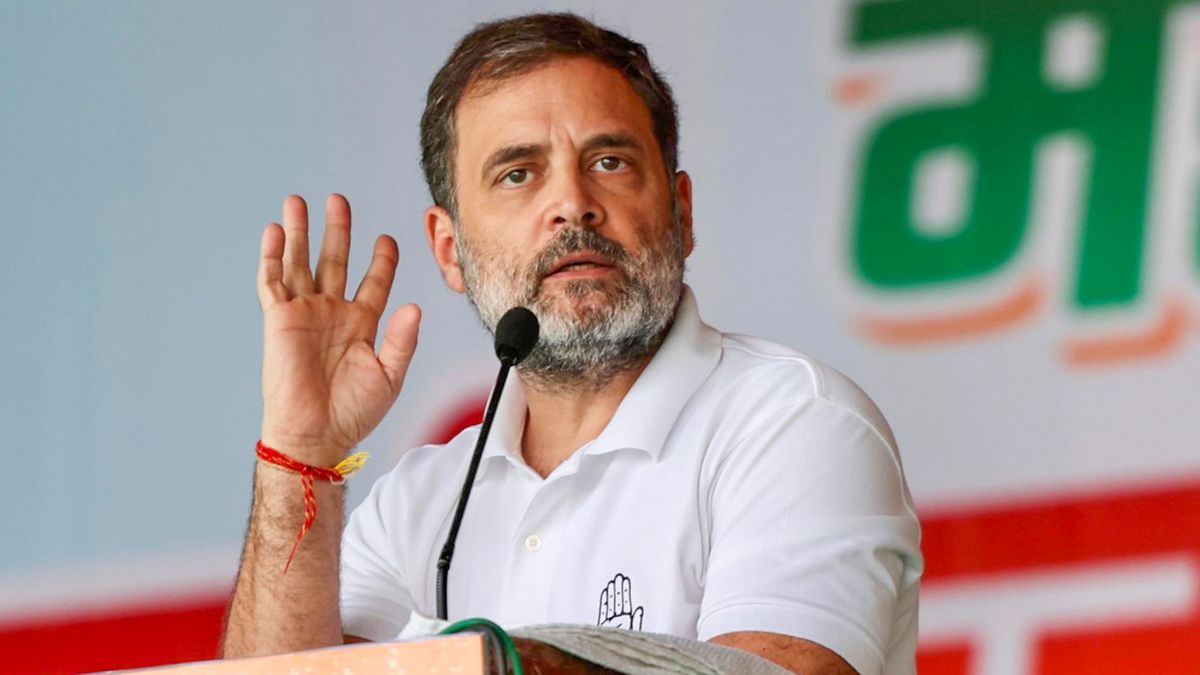) |
|
The Indian political landscape is currently embroiled in a significant controversy surrounding the citizenship status of prominent Congress leader Rahul Gandhi. Allegations of dual citizenship, specifically the possession of a UK passport alongside his Indian citizenship, have been brought before the Allahabad High Court. This legal challenge, initiated by BJP worker S Vignesh Shishir via a public interest litigation (PIL), has ignited a heated political debate, with far-reaching implications for Gandhi's political career and the legal framework surrounding citizenship in India. The core of the issue lies in the incompatibility of dual citizenship with Indian law. The Constitution of India explicitly prohibits its citizens from simultaneously holding citizenship in another country. This legal principle is not merely a technicality; it's deeply rooted in concerns about national security, economic stability, and the integrity of the electoral process. The petitioner's claim, bolstered by purported evidence from the UK government, directly challenges Gandhi's eligibility to hold his current position as a member of the Lok Sabha, the lower house of India's parliament.
The Allahabad High Court's intervention underscores the gravity of the situation. The court has directly requested the Union Home Ministry to provide detailed information regarding the investigation into Gandhi’s citizenship status. This request, made in response to the PIL filed by Shishir, reflects the judicial process’s dedication to upholding the rule of law and ensuring that all individuals, regardless of political affiliation, are held accountable under the provisions of the Indian Constitution. The Home Ministry, in its response to the court, indicated that the matter is under active investigation. This investigation, however, is not the first instance of scrutiny regarding Gandhi's citizenship. A separate case, filed by BJP leader Subramanian Swamy in the Delhi High Court, also focuses on this matter, creating a parallel legal track. The Delhi High Court’s decision to proceed cautiously, however, avoids conflicting orders with the Allahabad High Court’s ongoing process.
The PIL filed in the Allahabad High Court goes beyond simply questioning Gandhi’s citizenship. It calls for the Central Bureau of Investigation (CBI) to launch a criminal inquiry into the alleged violation of the Bharatiya Nyaya Sanhita and the Passport Act, legislation aimed at regulating Indian citizenship and passport issuance. The petitioner also seeks the cancellation of Gandhi’s electoral certificate, a measure that would severely impact his political standing. This multifaceted legal approach emphasizes the serious nature of the allegations and underscores the potential consequences for Gandhi if the allegations are proven. The petitioner's claim of having direct communication from the UK government confirming Gandhi’s presence in their citizenship records has added considerable weight to the allegations, further intensifying the political tension surrounding this case.
The controversy surrounding Rahul Gandhi's alleged dual citizenship highlights the complexities of Indian citizenship law and its implications for public figures. The absence of dual citizenship in India stems from a need to maintain national unity and to protect the integrity of the electoral system. While India does offer the Overseas Citizenship of India (OCI) program as an alternative for Persons of Indian Origin (PIOs), it doesn't grant the full rights and privileges associated with full citizenship, including the right to vote or hold public office. This program provides a pathway for individuals with strong ties to India to maintain a connection, but it explicitly avoids the complexities and potential challenges associated with dual citizenship. The ongoing court proceedings will be pivotal in determining the veracity of the claims and shaping the future of this high-profile political case.
The legal battle is not merely a clash between opposing political parties; it’s a test of the integrity of India's legal system and its ability to uphold the principles enshrined in its Constitution. The outcome of this case will have profound consequences, not only for Rahul Gandhi’s political career but also for the understanding and application of Indian citizenship laws. It will also provide a significant precedent for similar cases in the future, clarifying the legal implications of dual citizenship allegations and setting a standard for the investigation and resolution of such sensitive matters. The ongoing investigations by the CBI, coupled with the judicial review by both the Allahabad and Delhi High Courts, demonstrate the extensive efforts being undertaken to ensure transparency, accountability, and due process within the legal framework of India.
The high-profile nature of the accused and the intense media scrutiny amplify the significance of these proceedings. The political ramifications of a verdict either confirming or refuting the allegations are substantial, capable of significantly shifting the political landscape. The ongoing debate also prompts a deeper examination of India’s citizenship laws and the need for clear and consistently enforced regulations. The case underscores the importance of maintaining the integrity of the nation’s political process and ensuring accountability for those who hold prominent positions of authority. Whether the accusations are ultimately proven or dismissed, this case is sure to leave a lasting impact on Indian politics and legal precedents surrounding citizenship.
Source: Does Rahul Gandhi have UK passport? Does India allow dual citizenship?
